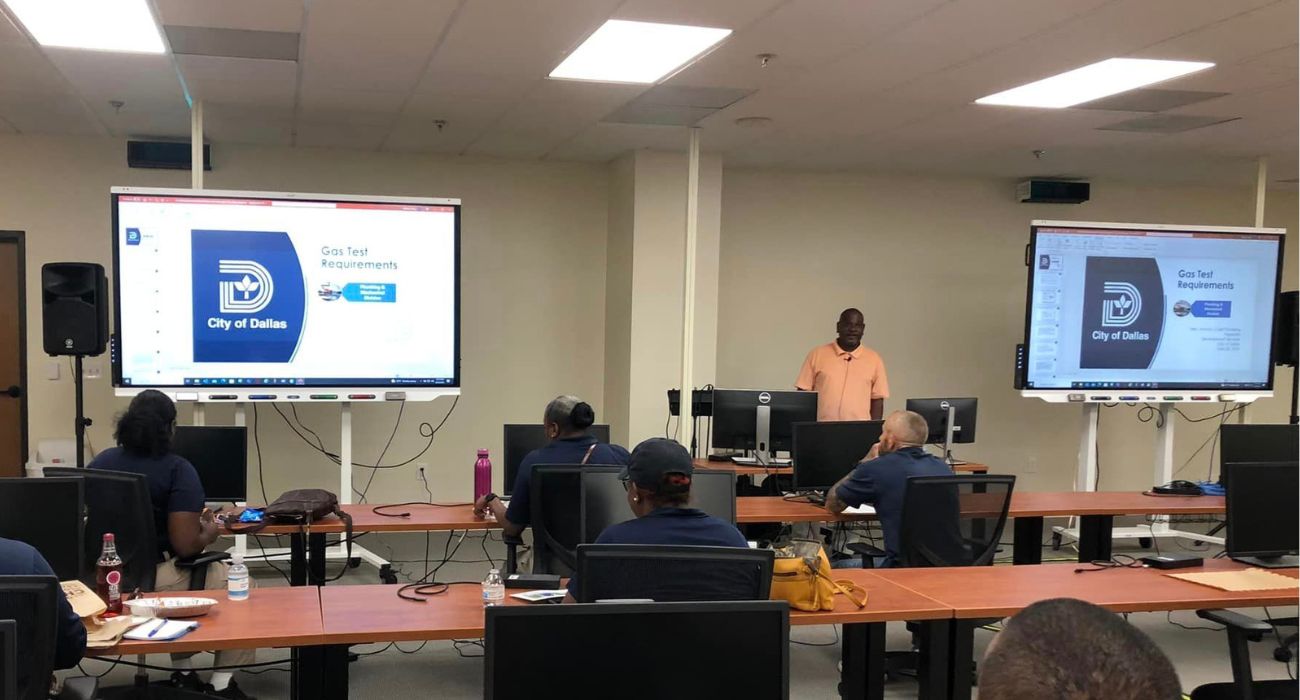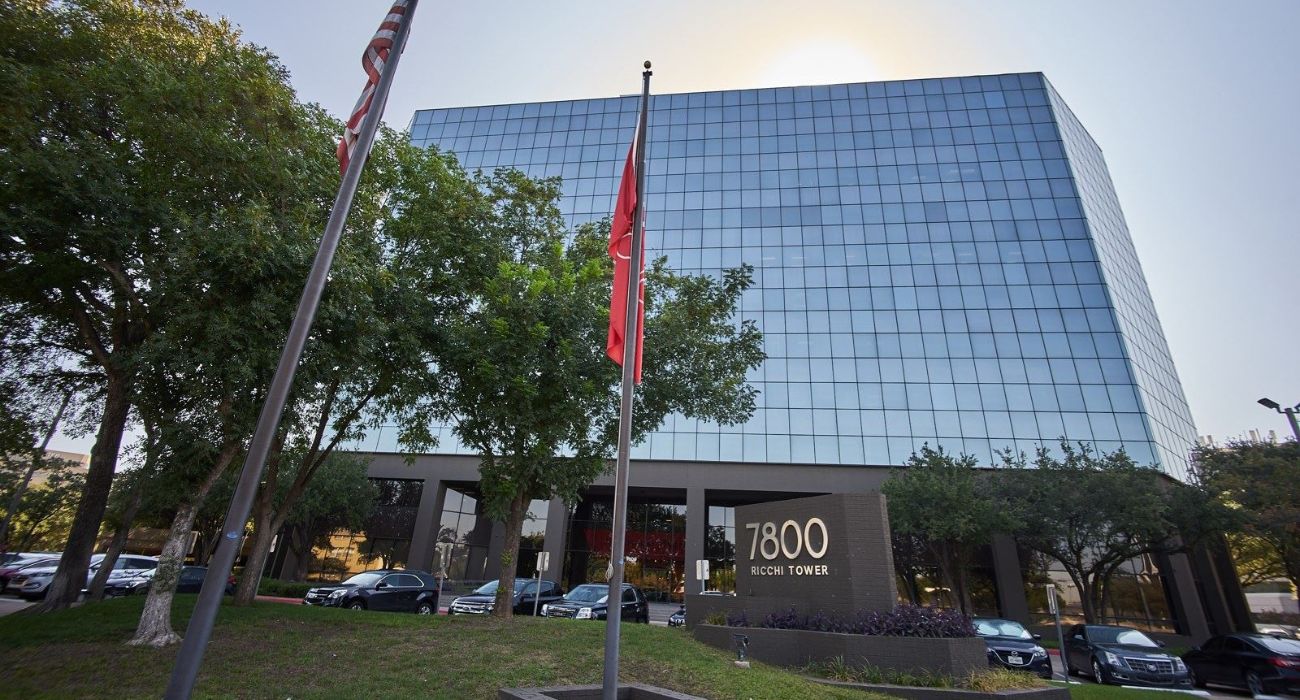The City of Dallas Development Services Department (DSD) held a Lunch-N-Learn session on Wednesday, during which the City’s plumbing and mechanical division underscored the importance of local gas test protocols and requirements when conducting multifamily apartment inspections.
The June 28 training session was led by Terry Johnson, chief plumbing inspector for the City of Dallas. During the session, Johnson emphasized the risks associated with gas leaks.
“Gas leaks not only cause fires and explosions, but they also cause intolerable inconvenience, illnesses, injuries, and even fatalities,” Johnson said during the session.
Natural gas distribution in Dallas is operated by Atmos Energy, which is regulated by the Texas Railroad Commission. Therefore, inspectors must abide by Atmos Energy protocols before conducting any natural gas inspections.
Like other components of the City’s development process, natural gas inspections can only be allowed once a permit has been issued.
“A gas test permit is required for each building affected by an Atmos disconnect due to a failed pressure test,” Johnson said. “This allows gas to be restored to buildings as they are repaired as opposed to completing repairs on all buildings before the gas can be restored.”
In general, a gas test permit must be obtained by a licensed plumbing contractor who has a current master plumber’s license issued by the Texas State Plumbing Board and is registered with the City of Dallas as a plumbing contractor.
It is currently unclear how long it can take to be issued a gas test permit from DSD. The permitting process is currently managed by Dallas’ chief building official and DSD director, Andrew Espinoza. The ultimate responsibility for operations, however, belongs to City Manager T.C. Broadnax, who nearly lost his job in 2022 due partly to the growing backlog of construction permits and extensive delays reported by the people trying to secure them.
“No inspections will be performed without a permit. However, inspections can be performed while the permit process is pending approval. This usually happens after hours during the winter months or on multifamily properties,” he explained.
Natural gas inspections can occur quickly in some cases, but in others, not so much. It depends on the speed at which a gas test permit is obtained and the severity of the issue. The most common causes of gas leaks are corrosion, improper piping materials, faulty installations, and human error.
“Components of gas appliances naturally wear out and corrode, appliance seals can wear away and cause gas to escape. This usually happens slowly but worsens over time — meaning a tiny leak can eventually become a big leak,” Johnson explained. “Gas pipes must be made of specific types of materials and installed in an approved method.”
Human error can also lead to gas leaks, Johnson added. Excavation contractors digging can hit a gas line, or a gas appliance can spring a leak when being moved or cleaned.
When natural gas leaks occur, it is the personal and financial responsibility of the property owner to address the issue and maintain the gas line. This applies to all forms of property development, including single-family, multifamily, and commercial.
If a gas test permit is not obtained from DSD before the inspection, Atmos Energy will not restore natural gas to the property.
For instance, Johnson explained that when Atmos Energy shut off the gas at Dallas City Hall several weeks back, “it took about a week-and-a-half before the inspector could come in and identify the problem.”
While much different than a typical single-family construction permit, gas test permits are equally crucial in ensuring a smooth development process. Given the large scale of multifamily properties and the large number of units requiring review, the completion time of natural gas inspections can vary.
Given the scope of conducting a gas test inspection at a multifamily property, DSD does not provide the average wait time as it does for single-family construction permits.






